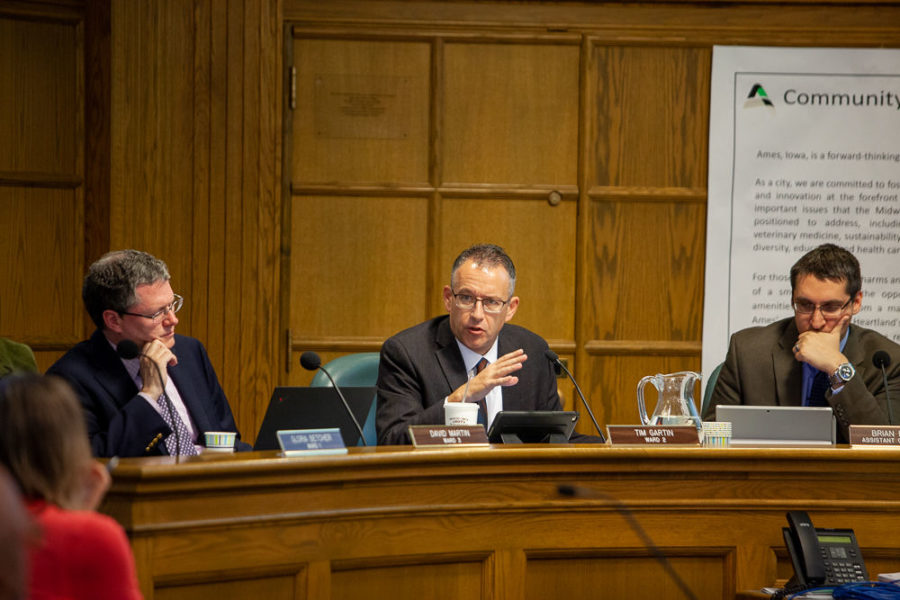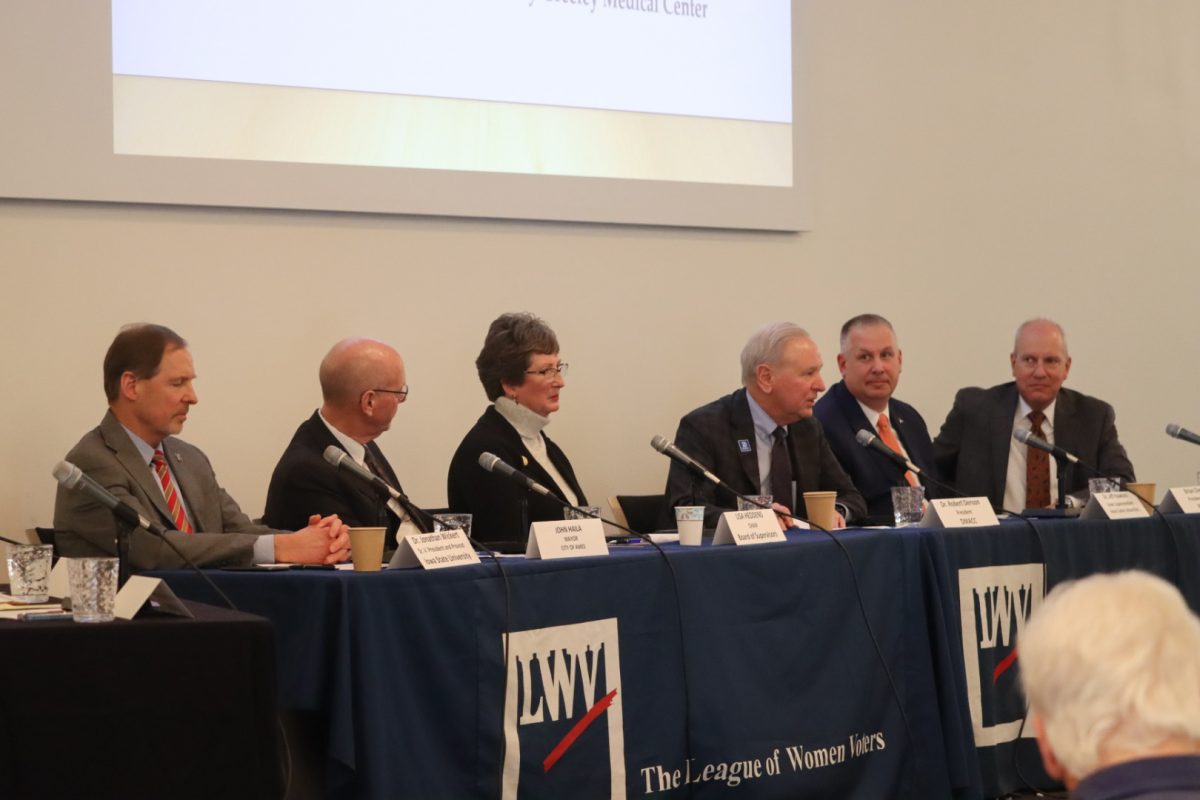Motion to bring a mobilized scooter pilot program fails
Ames City Council voted to repeal the existing mask ordinance effective May 28, and a resolution was passed to suspend enforcement of the ordinance until that time.
March 10, 2020
After the motion to pursue a pilot program for motorized scooters failed, the Ames City Council voted to create a list of priorities regulating micromobility.
In June 2019, the staff was directed by the Council to investigate how other cities regulated micromobility, specifically focusing on motorized scooters and the consideration to offer them in Ames.
Micromobility includes several modes of transportation, though the defining factor is the gross vehicle weight is less than 1,100 pounds.
A committee that consisted of Iowa State and the city of Ames staff studied and reviewed the information and identified benefits and concerns of scooters.
The scooters could reduce the carbon emissions as well as create more jobs, according to the city of Ames staff report, while contributing to the fun factor within the Council’s goals. Additionally, the scooters would complement the existing form of public transportation.
“Among students, I have heard only support for [the pilot program]—albeit those people probably aren’t thinking about the harms and they’re thinking a lot about the fun—I think there is value in that,” said ex-officio Devyn Leeson. “I mean one of our Council goals that we just adopted and talking about is making Ames a fun place, right?”
Leeson said with more information, Iowa State Student Government could be more supportive of the decision.
One of the primary benefits discussed was the fun factor they would bring, while the biggest concern was potential safety hazards.
A primary concern of scooters is safety, and it is dependent on the jurisdiction of where and when they are operated. There is also a concern of enforcement and who will be responsible for enforcing the parking of scooters. The staff reported the police department or another city department would not be advisable to assign this task to.
Councilwoman Rachel Junck, representing Ward 4, said the responsibility could rely on the business.
“I would be supportive of doing a pilot program, I’m not 100 percent sure that this is going to work in Ames […] but I think a lot of the policy questions with enforcement and geofencing in particular, could be answered and we could figure out the specifics in how these scooters work,” Junck said. “So I’d be interested in doing a pilot program if maybe limiting the number of scooters or the amount of companies that can come in and start so we can really understand how the ordinances work and how we can have the enforcement work.”
Several pilot programs have been launched within the United States, including a 30-day program in Cedar Rapids, Iowa, according to The Des Moines Register. There, the scooters cost $1 to unlock and 15 cents per minute to operate.
The pilot program in Cedar Rapids prohibited users from riding on downtown sidewalks and instead use available bicycle lanes. The Register also reported the scooters could be abandoned “almost anywhere” though there are designated painted parking areas as well as bicycle sharing stations.
This form of enforcement also rose concern regarding the relationship between the business and its customers, Councilman David Martin, who represents Ward 3, said.
“So we have to look at those companies’ relationships with their customers who are our residents and when I look at the contracts the companies have with their users—I’m not very impressed,” Martin said. “The users have to waive significant rights […] the users of these devices take all risk […] Some of this is business as usual this day in age but again, we’re entering into a partnership with a company that is getting people [to] agree to this, in order to use the products. It makes me uncomfortable.”







